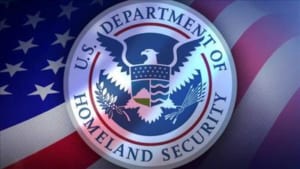United States licensed attorneys representing clients before the Department of Homeland Security (“DHS”) or the Department of State (“DOS”) submit a Form G-28 Notice of Entry of Appearance as Attorney or Accredited Representative (“Form G-28”). Submitting a Form G-28 notifies DHS and DOS that this person is being represented by an attorney. This is particularly helpful if during the process, problems occur which could result in an adverse decision for the client such as rejection or refusal of the immigration benefit being sought.
The Code of Federal Regulations (“CFR”), which is the law for U.S. federal agencies like DHS or DOS, is very specific on the definition of an “attorney.” Specifically, 8 CFR 1.2 states that an attorney is “any person who is eligible to practice law, and is a member in good standing, not currently being subjected to discipline of the state bar in any state.” Because the definition is expressly clear, it precludes any other person, such as a visa agent or foreign licensed attorney, from meeting that requirement. As such, only representatives (attorneys) who meet the definition may file a Form G-28.
Visa agents and non-U.S. licensed attorneys are precluded from submitting a Form G-28. Instead, many visa agents or foreign attorneys who offer U.S. immigration services often inform their clients that a DS-261, Online Choice of Address and Agent (“DS-216”) filed with DOS is an acceptable substitute for a Form G-28 which allows them to interact with DHS or DOS on the client’s behalf. This unfortunately is misrepresentation even if the visa agent or foreign attorney has been engaging in such practice for years and has never had any problems with either DHS or DOS. In fact, the rules are quite strict and are designed to protect individual petitioners and beneficiaries from unauthorized or fraudulent practitioners while using the generic term “agent” to mislead clients into believing that a DS-261 will allow them to act as an authorized representative.
Within the context of a DS-261, the Foreign Affairs Manual (“FAM”), which is the “operating manual” for DOS, a DS-261 allows the principal applicant to designate an agent for his or her case. The term agent under the FAM means a person who will receive mail from DOS and the agent may be the petitioner, an attorney, friend, or nongovernmental or community-based organization such as one that assists refugees. The agent however cannot complete and sign documents on behalf of the applicant nor assist with fee payments, collect professional fees for such services, nor assist with documentation collection. The applicant may choose to designate him or herself as the agent.
Regretfully, visa agents or foreign attorneys who offer U.S. immigration services often try to circumvent the meaning of “agent” as defined by the FAM by informing their clients that if asked, the visa agent or the foreign licensed attorney is the applicant’s “friend” hiding this repetitive violation and fundamental dishonesty. Most importantly, such agents are not trained to identify potential problems with an applicant’s case and may not be able to help to solve the problem if it occurs.
For more information on how a U.S. immigration attorney in Asia can help you with your immigrant requirements, contact us today at info@enterlinepartners.com and speak with one of our attorneys in Ho Chi Minh City, Manila and Taipei.
ENTERLINE & PARTNERS CONSULTING
Ho Chi Minh City, Vietnam Office
Suite 601, 6th Floor, Saigon Tower
29 Le Duan Street
Ben Nghe Ward, District 1
Ho Chi Minh City, Vietnam
Tel: +84 933 301 488
Email: info@enterlinepartners.com
Facebook: Enterline & Partners – Dịch vụ Thị thực và Định cư Hoa Kỳ
Website: http://enterlinepartners.com
Manila, Philippines Office
Tel: +632 5310 1491
Email: info@enterlinepartners.com
Facebook: Enterline and Partners Philippines
Website: https://enterlinepartners.com/language/en/welcome/
Copyright 2021. This article is for information purposes only and does not constitute legal advice. This article may be changed with or without notice. The opinions expressed in this article are those of Enterline and Partners only.








